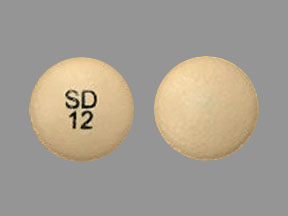Austedo and Alcohol/Food Interactions
There is 1 alcohol/food/lifestyle interaction with Austedo (deutetrabenazine).
Alcohol (Ethanol) Deutetrabenazine
Moderate Drug Interaction
GENERALLY AVOID: Alcohol may potentiate some of the pharmacologic effects of central nervous system (CNS)-active agents. Use in combination may result in additive CNS depression and/or impairment of judgment, thinking, and psychomotor skills.
MANAGEMENT: Patients receiving CNS-active agents should be advised to avoid or limit consumption of alcohol. Ambulatory patients should be counseled against driving, operating machinery, or engaging in potentially hazardous activities requiring mental alertness and motor coordination until they know how these agents affect them, and to notify their physician if they experience excessive or prolonged CNS effects that interfere with their normal activities.
References (5)
- Warrington SJ, Ankier SI, Turner P (1986) "Evaluation of possible interactions between ethanol and trazodone or amitriptyline." Neuropsychobiology, 15, p. 31-7
- Gilman AG, eds., Nies AS, Rall TW, Taylor P (1990) "Goodman and Gilman's the Pharmacological Basis of Therapeutics." New York, NY: Pergamon Press Inc.
- Cerner Multum, Inc. "UK Summary of Product Characteristics."
- (2012) "Product Information. Fycompa (perampanel)." Eisai Inc
- (2015) "Product Information. Rexulti (brexpiprazole)." Otsuka American Pharmaceuticals Inc
Switch to consumer interaction data
Austedo drug interactions
There are 452 drug interactions with Austedo (deutetrabenazine).
Austedo disease interactions
There are 5 disease interactions with Austedo (deutetrabenazine) which include:
More about Austedo (deutetrabenazine)
- Austedo consumer information
- Check interactions
- Compare alternatives
- Pricing & coupons
- Reviews (12)
- Drug images
- Side effects
- Dosage information
- Patient tips
- During pregnancy
- FDA approval history
- Drug class: VMAT2 inhibitors
- En español
Related treatment guides
Drug Interaction Classification
| Highly clinically significant. Avoid combinations; the risk of the interaction outweighs the benefit. | |
| Moderately clinically significant. Usually avoid combinations; use it only under special circumstances. | |
| Minimally clinically significant. Minimize risk; assess risk and consider an alternative drug, take steps to circumvent the interaction risk and/or institute a monitoring plan. | |
| No interaction information available. |
See also:
Further information
Always consult your healthcare provider to ensure the information displayed on this page applies to your personal circumstances.


